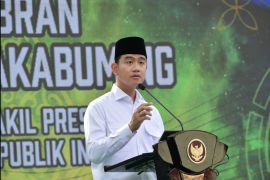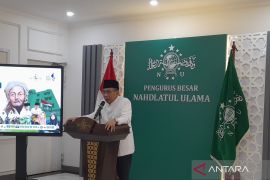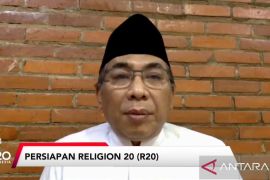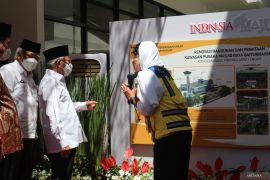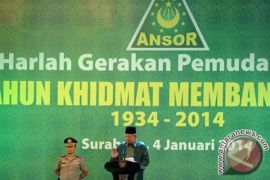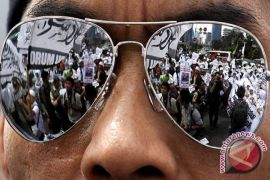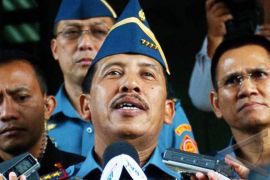"Faith is a matter that cannot be forced but can be discussed. Therefore, we backs up the inter-ministerial decree, which has banned the deviant activities of the Ahmadiyah followers," Secretary of NU-East Java Chapter HM Masyhudi Muchtar said here Monday.
The inter-ministerial decree sent a warning for the Ahmadiyah followers to stop spreading their deviant sect and activities, including an understanding of a prophet after Prophet Muhammad (peace be upon him), he said.
The Ahmadiyah had indeed shown the deviance of Islamic tachings and NU`s religious understandings because this deviant sect`s followers acknowledged the existence of Mirza Ghulam Ahmad as a thje messenger of God after Prophet Muhammad, he said.
The ban on the Ahmadiyah sect was an opportunity of the government and Islamic figures to carry out their respective responsibilities.
For the government, it could enforce the law while Islamic figures build a constructive and fruitful dialogue with the Ahmadiyah followers, he said.
On February 18, a number of Islamic organizations and the Indonesian Council of Ulemas (MUI) in Banten had asked the government to ban the Ahmadiyah sect in the province soon.
"Before the Cikeusik incident on February 6, MUI had actually urged the provincial government to ban all the activities of the Ahmadiyah sect," MUI-Banten chapter`s chairman KH Aminudin Ibrahim said.
MUI, Nahdlatul Ulama, Muhammadiyah, and Religious Followers` Harmony Forum (FKUB) in Banten Province had agreed to again call on the provincial government to impose a ban on all activities of the Ahmadiyah under a regulation of thea Banten governor`s or provincial government, Ibrahim said.
A series of attacks on Ahmadiyah religious sect followers and their properties have occurred in some parts of Indonesia over the past two years.
The latest incident broke out in Umbulan village, Cikeusik subdistrict, Pandeglang district, Banten province, on February 6, killing three people.
In response to the latest incident, Former Vice President Jusuf Kalla said the case of sectarian violence could be handled if the law is firmly enforced against the perpetrators.
"Don`t let the perpetrators become untouched by the law. If so, there will be a feeling that if we kill or destroy properties in a mass, and we would think that the law cannot do anything," he said.(*)
Editor: Aditia Maruli Radja
Copyright © ANTARA 2011
